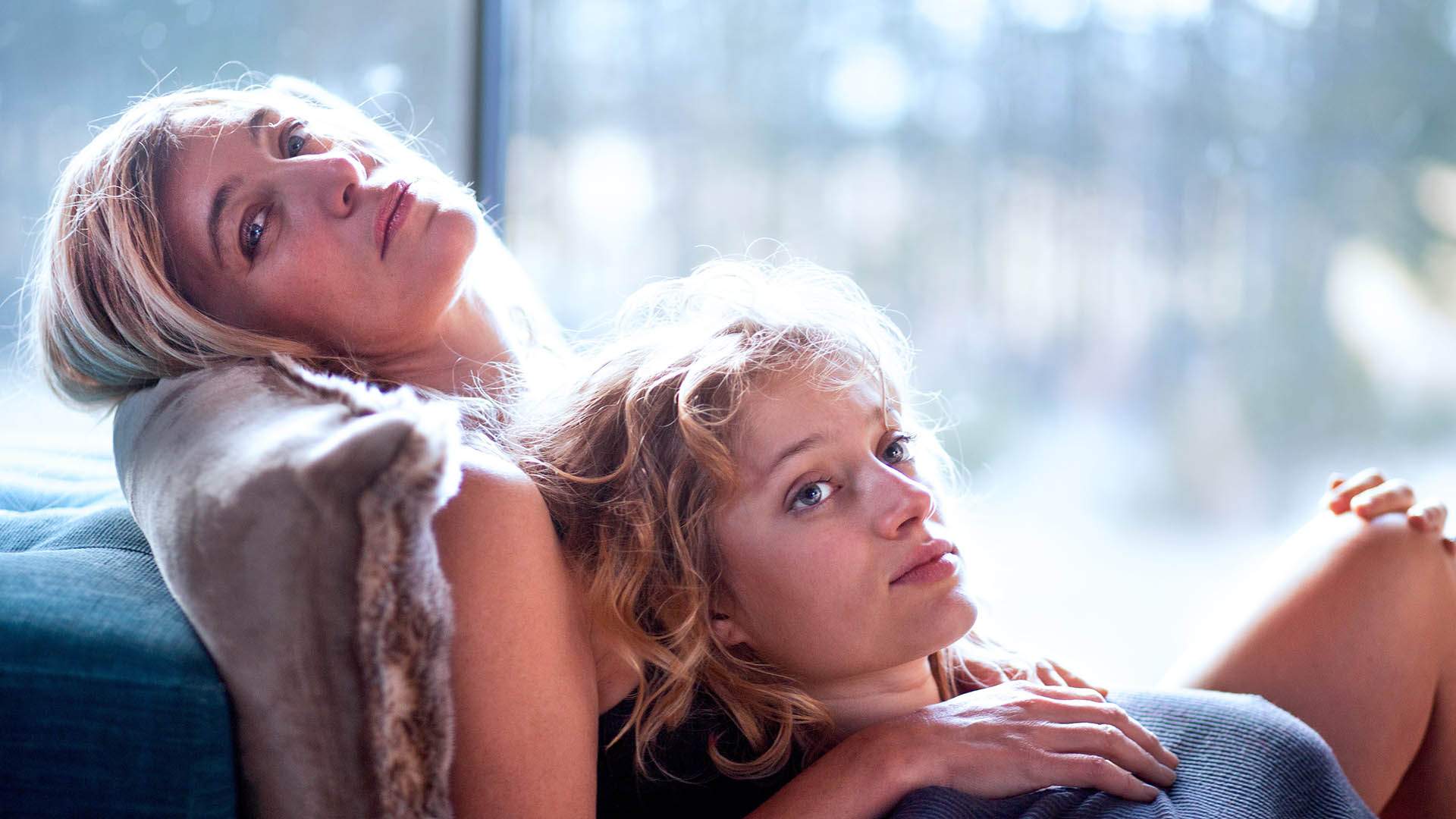Only the Animals
This involving French thriller pieces together a murder-mystery from multiple perspectives.
Overview
Murder-mystery Only the Animals begins with a killer opening image: of a live goat being worn like a backpack. The animal is slung over the shoulders of a cyclist as he rides through the streets of the Côte d'Ivoire city of Abidjan, and the unique picture that results instantly grabs attention — for viewers, even if it doesn't appear to interest anyone in the vicinity on-screen. This French-language thriller doesn't explain its attention-grabbing sight straight up, though. Instead, it jumps over to the Causse Mejean limestone plateau in southern France, where snow blankets the UNESCO World Heritage-listed site and — unrelated to the weather — a number of locals are icily unhappy. Indeed, farmer Michel (Denis Ménochet, Custody), his insurance agent wife Alice (Laure Calamy, Call My Agent!) and Joseph (Damien Bonnard, Dunkirk), one of her clients, are all far from content before word spreads of a shock death in the area; however, the news has implications for all three.
Doing house calls is part of Alice's job in her small, close-knit community, and it sees her embarking upon an affair with the awkward Joseph, who has shut himself off from everything beyond his property after mother passed away a year prior. The surly Michel barely seems bothered about his marriage or its possible downfall, spending all his time in the office attached to his cattle-feeding shed ostensibly working on the farm's accounts. Adapting the novel Seules Les Bêtes by Colin Niel, writer/director Dominik Moll (News from Planet Mars) and his frequent co-screenwriter Gilles Marchand switch between Only the Animals' characters and relay the details from their perspectives. First, Alice's take on the situation graces the screen. Next, it's Joseph's turn. Waitress Marion (Nadia Tereszkiewicz, The Dancer) earns the third chapter, which charts her hot-and-heavy rendezvous with Evelyne (Valeria Bruni Tedeschi, Let the Sunshine In), the woman who'll turn up dead — while the final and longest segment belongs to Armand (debutant Guy Roger 'Bibisse' N'Drin), without the goat, as he tries to catfish his way to riches, success and the girl of his dreams.
A whodunnit, Only the Animals tasks its audience members with sleuthing their way through its fractured tale, all to discover who is responsible for Evelyne's demise and why. Thanks to its multiple parts, it also gets viewers guessing about events that initially appear unrelated, and how they'll end up linking into the broader story. But the film is filled with other questions, too, ruminating on the primal nature of love and pondering the ways in which pursuing it — or chasing a mere moment, however fleeting, with someone else — can lead down immensely complicated paths. It's here that Only the Animals' narrative structure proves more than just a way to make its plot seem more complex. That can happen with nonlinear yarns; try as many of them might, they can't all be Rashomon, the Akira Kurosawa-directed 1950 Japanese masterpiece that has become a shorthand term for movies with narratives unfurled from different but overlapping viewpoints.
As effectively as Moll maintains the tension throughout the film — and keeps his viewers wondering, even as its strands start to converge — Only the Animals isn't Rashomon, either. No other movie is. Still, as the feature's four segments chronicle its characters' varying quests to connect, each one builds upon its predecessors in both a storytelling and an emotional sense. Piece by piece and layer by layer, Only the Animals' chapters combine to paint an intricate and involving portrait of potential, waning, stolen and fake romances, and of the ways in which the decisions of any one person can end up impacting others. Realising that almost everyone always acts in their own self-interest, regardless of whether they're pursuing a grand romance or just a brief fling with someone else, couldn't be more crucial. So is knowing the bliss that can spring when it feels like someone truly sees you, and how that sensation can inspire bold choices and terrible decisions alike (including seeking out the help of a gangster shaman, the film's weakest inclusion).
Back in 2000, Moll made a splash with darkly comic thriller Harry, He's Here to Help — and while there are few laughs to be had in Only the Animals, a twisty tone still shines through. The film's plot developments and vignette-esque portions aren't the only elements that leap in sudden directions; love can be strained, strange, glorious and desperate here, for instance, and the movie's impressive actors all engagingly convey a wide range of feelings and reactions, including when only actions rather than words suit. That said, it just might be Moll's use of Benedikt Schiefer's (Exile) enticingly twinkling soundtrack against cinematographer Patrick Ghiringhelli's (Eden) naturally lit, cool-hued imagery that sums up the film best. Only the Animals doesn't just unravel a mystery, or several, but also recognises that sometimes enigmas and uncertainties arise simply because different things clash together and no one is quite prepared for the aftermath.





